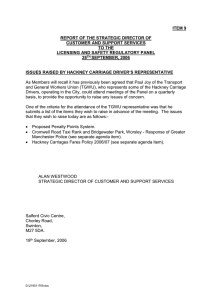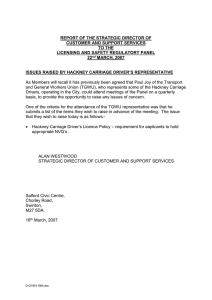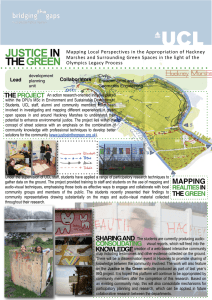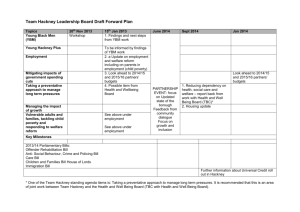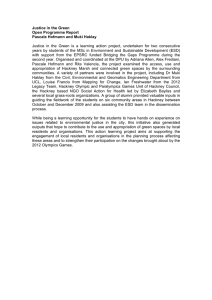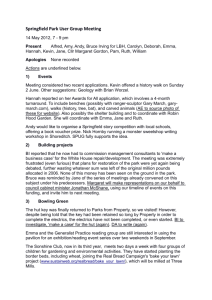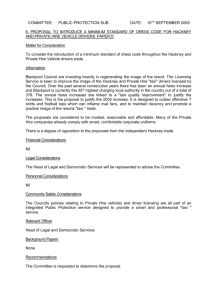Word, 45KB - Hackney Council
advertisement
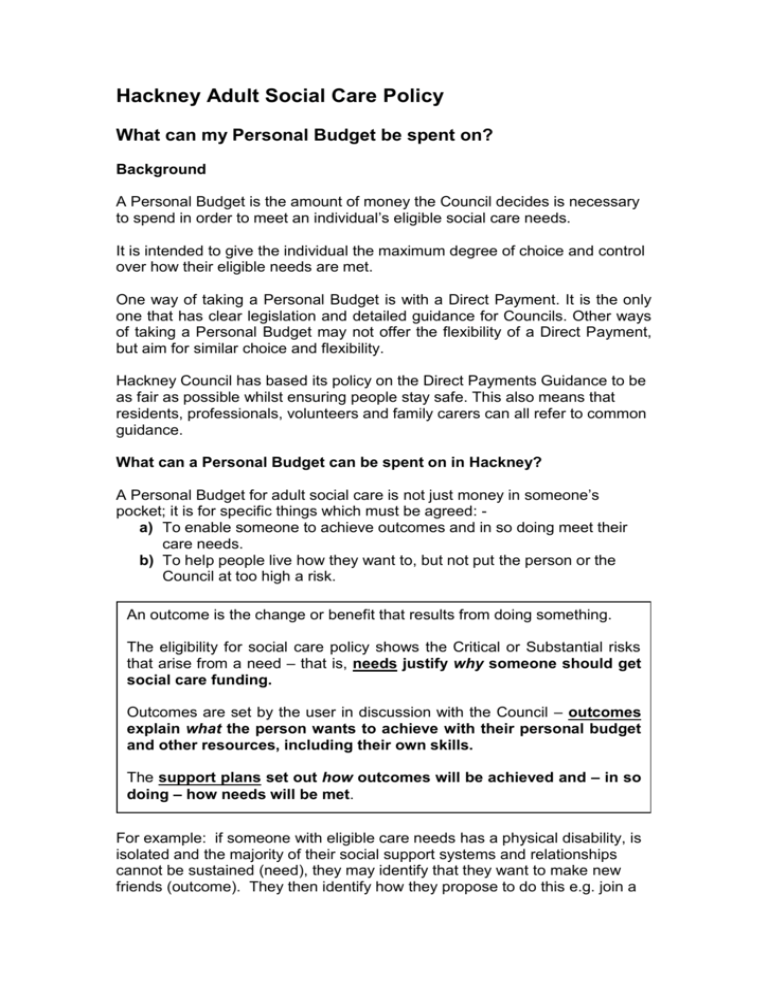
Hackney Adult Social Care Policy What can my Personal Budget be spent on? Background A Personal Budget is the amount of money the Council decides is necessary to spend in order to meet an individual’s eligible social care needs. It is intended to give the individual the maximum degree of choice and control over how their eligible needs are met. One way of taking a Personal Budget is with a Direct Payment. It is the only one that has clear legislation and detailed guidance for Councils. Other ways of taking a Personal Budget may not offer the flexibility of a Direct Payment, but aim for similar choice and flexibility. Hackney Council has based its policy on the Direct Payments Guidance to be as fair as possible whilst ensuring people stay safe. This also means that residents, professionals, volunteers and family carers can all refer to common guidance. What can a Personal Budget can be spent on in Hackney? A Personal Budget for adult social care is not just money in someone’s pocket; it is for specific things which must be agreed: a) To enable someone to achieve outcomes and in so doing meet their care needs. b) To help people live how they want to, but not put the person or the Council at too high a risk. An outcome is the change or benefit that results from doing something. The eligibility for social care policy shows the Critical or Substantial risks that arise from a need – that is, needs justify why someone should get social care funding. Outcomes are set by the user in discussion with the Council – outcomes explain what the person wants to achieve with their personal budget and other resources, including their own skills. The support plans set out how outcomes will be achieved and – in so doing – how needs will be met. For example: if someone with eligible care needs has a physical disability, is isolated and the majority of their social support systems and relationships cannot be sustained (need), they may identify that they want to make new friends (outcome). They then identify how they propose to do this e.g. join a club; take up a hobby; get someone help them make contact with old friends they’ve lost touch with (plan). Personal Budgets are for those needs that trigger an allocation of care funding. However, they are spent on meeting outcomes and outcomes and needs don’t always fit neatly together. Some people will identify things which meet a range of needs – e.g. “I want to get a job one day” – and it is important that people have flexibility to plan their support. Allowing creativity is important so people can make the most of their budget to meet their care needs and to achieve a better quality of life based on what’s important to them. What can’t I spend a Personal Budget on Hackney? Personal Budgets are not for buying: Something unlawful, like cannabis Services or equipment that is the responsibility of another public service to provide you with, like an operation Everyday things which your own money or other benefits should pay for, like food, transport or rent Unless the Council believe it is necessary, you cannot use a Personal Budget to pay for support from: Your spouse or partner (a person who you live with as a couple) A close relative who you live with The spouse or partner of a close relative you live with What checks will the Council apply when agreeing a support plan? The following questions will be asked of each support plan: 1. Does the person want to spend their budget on things they cannot? 2. Has risk been considered and if the plans do put the person at some risk, are there adequate plans in place to manage that? 3. Are the person’s care needs met? 4. Is there a good chance it will help the person meet their outcomes? 5. Does the plan pose a risk to the Council in any way, e.g. Is it a poor use of public funds (should the person be getting a better deal)? Does it clash with other duties the Council has by law (for example to promote equality)? It is important to note the point above about getting a good deal. A good deal for the person is a good deal for the Council. Some services cost more than others; when someone needs those costlier services, we will probably agree a higher final budget than the estimated one. When someone spends more than they should on services, such as paying a Personal Assistant more than the going rate, we will reduce the proposed final budget to something more reasonable.
